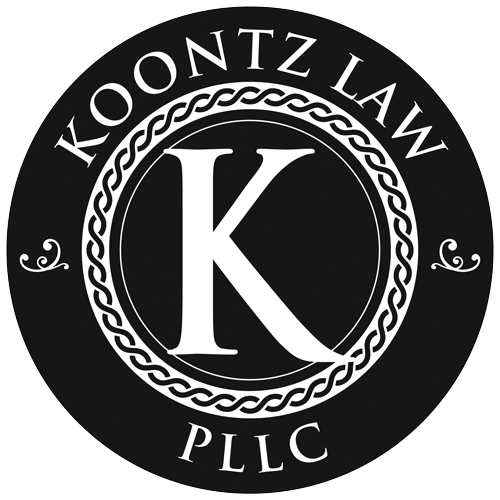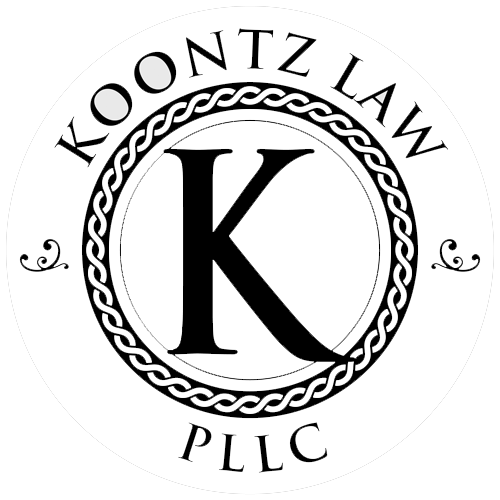Avoiding Common Mistakes in Residential Real Estate Closings
Buying or selling a home is an exciting milestone, but the process of closing a real estate transaction can be complex and full of potential pitfalls. A mistake during closing can lead to delays, financial losses, or even legal disputes. At Koontz Law, PLLC, we help buyers and sellers in North Carolina navigate the closing process with confidence. Here are some of the most common mistakes in residential real estate closings—and how to avoid them.
1. Not Reviewing the Sales Contract Carefully
The purchase agreement is the foundation of any real estate transaction, outlining key details such as the purchase price, contingencies, and closing timeline. Buyers and sellers often skim over the contract without fully understanding the terms, which can lead to disputes later.
How to avoid this mistake:
Read the contract thoroughly before signing.
Work with a real estate attorney to clarify any unclear terms.
Ensure all negotiated terms are accurately reflected in the contract.
2. Ignoring Title Issues
How to avoid this mistake:
Title problems, such as unpaid liens, boundary disputes, or errors in public records, can delay or derail a closing. Failing to conduct a proper title search and obtain title insurance can leave buyers vulnerable to future legal issues.
Ensure a comprehensive title search is performed before closing.
Purchase title insurance to protect against potential claims.
Address any title defects before finalizing the transaction.
3. Not Securing Mortgage Approval in Advance
Some buyers assume that pre-qualification for a mortgage is the same as final loan approval, only to find out at closing that their financing has fallen through. Lenders may deny a loan due to changes in credit scores, job status, or debt levels.
How to avoid this mistake:
Obtain a pre-approval, not just a pre-qualification, before making an offer.
Avoid making large purchases or changing jobs before closing.
Stay in close contact with your lender to ensure all required documents are submitted.
4. Overlooking Closing Costs
Closing costs, which can include loan origination fees, attorney fees, title insurance, and property taxes, often catch buyers and sellers off guard. Miscalculating these expenses can strain finances at the last minute.
How to avoid this mistake:
Review your Loan Estimate and Closing Disclosure carefully.
Budget for closing costs in advance (typically 2-5% of the purchase price).
Ask your attorney or lender about any fees you don’t understand.
5. Failing to Perform a Final Walkthrough
The final walkthrough allows buyers to ensure the property is in the agreed-upon condition before closing. Skipping this step can lead to unpleasant surprises, such as unresolved repairs or missing fixtures.
How to avoid this mistake:
Conduct the walkthrough within 24-48 hours before closing.
Confirm that agreed-upon repairs have been completed.
Ensure appliances, plumbing, and electrical systems are in working order.
6. Not Understanding Property Disclosures
Sellers in North Carolina are required to provide a Residential Property and Owners' Association Disclosure Statement, which outlines known issues with the property. Buyers who overlook this document or fail to ask questions may discover hidden defects after closing.
How to avoid this mistake:
Review the disclosure statement carefully.
Request an independent home inspection to uncover potential issues.
Address concerns with the seller before closing.
7. Skipping Legal Review of Closing Documents
Closing documents, including the deed, settlement statement, and mortgage agreement, contain crucial details about the transaction. Buyers and sellers who rush through these documents may miss important terms or errors.
How to avoid this mistake:
Have an experienced real estate attorney review all documents before signing.
Verify that all personal and property details are accurate.
Ask questions about any terms you don’t understand.
8. Delaying the Closing Process
Unexpected delays, such as missing paperwork, unresolved contingencies, or financing issues, can postpone the closing and even jeopardize the deal.
How to avoid this mistake:
Stay proactive in gathering necessary documents.
Work closely with your lender, attorney, and real estate agent.
Address potential issues as soon as they arise.
How Koontz Law, PLLC Can Help
At Koontz Law, PLLC, we provide buyers and sellers with professional legal guidance to ensure smooth and successful real estate closings. From reviewing contracts and clearing title issues to handling closing documents and preventing delays, we protect your interests every step of the way. If you're preparing for a real estate closing in North Carolina, contact us today to schedule a consultation and close with confidence.










Request a Consultation
For more information or to receive a consultation, call us at (336) 751-6235 or complete the form.
Contact Us
We will get back to you as soon as possible.
Please try again later.

